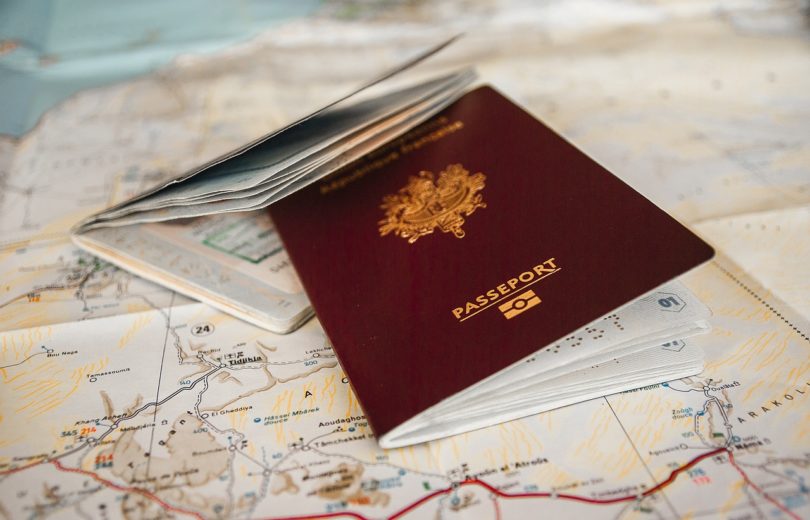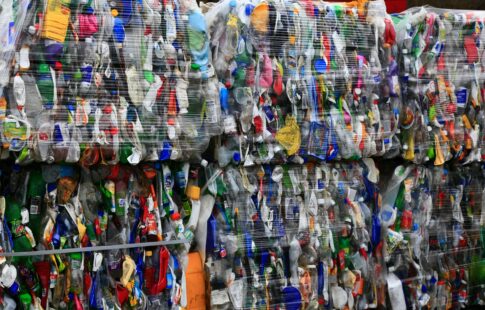
7 Valuable Eco-Friendly Lessons From Traveling
We are reader-supported. When you buy through links on our site, we may earn affiliate commission.
Traveling expands our horizons, broadens our outlook and allows our creativity to soar. However, the benefits of travel often mean creating a substantial negative impact on the environment. Luckily, traveling can also help us learn how to minimize our environmental impact. Here’s how.
Choose Your Destination Wisely
When planning a vacation, most travelers give little thought to matters such as whether their destination will have cleaner public transportation or recycling bins readily available. However, for the green traveler, such considerations are a must.
Think about your last road trip, for example. Chances are, when you stopped for gas or a bathroom break, you disposed of the trash that accumulated in your vehicle during the long drive. Did the gas station have recycling bins on hand? In most areas of the U.S., they do not, and as a result, plastic bottles and the like end up in the trash, rather than the recycling bin.
If you must drive through an area that is not eco-friendly, consider storing recyclable goods in your car until you reach a destination with recycling bins. I’ve started always carrying reusable bags in my car so that I can store trash in them until I reach an area where I can recycle everything.
How to Get to Your Destination in the Most Eco-Friendly Manner
Deciding how to get to your destination is as important as the destination itself. In general, driving is more environmentally friendly than flying. To make your trip even greener, consider offering to share the ride with others, if possible. Keep an eye on your speed, as an increase of 10 mph means, on average, an extra 15 percent in fuel expenditure. If driving a rental vehicle, choose a hybrid or one that runs on alternative fuel if possible.
If you must fly, do your best to stick to nonstop flights, as layovers along the way use much more fuel when the planes land and take off. Also, try to pack as lightly as possible, depending on the length of your trip, as each pound of luggage equates to higher fuel costs. If you can get it all into a carry-on, you have the bonus of knowing your bag will not get lost.
Making Your Hotel Stay More Earth-Friendly
As most of us who have stayed at a hotel over the past several years know, many lodging destinations request guests ask for fresh sheets and towels only when necessary. But even if the hotel where you stay does not offer signage to remind you, make a mental note to hang up your wet towels to dry and to leave a note for the cleaning staff to refrain from changing your sheets until you ask them to.
If you’re camping, in lieu of the RV, try to get a true taste of peaceful outdoor living by bringing a tent instead for shorter trips. Just be sure to pack out everything you bring in.
Choosing Eco-Friendly Activities
Where you go on your travels is not nearly as important as the fun you have while there, right? While activities are important to a memorable vacation, be conscious of the environmental impact of your activities. If touring in a group, strive to find activities with a smaller carbon footprint. For example, if your trip involves off-roading over rocky terrain, choose a Jeep tour that accommodates a group of four to eight people, instead of renting an ATV that can only carry one or two.
You can also gear your getaway toward making a positive impact on the planet. If you’re planning a tropical getaway, why not participate in an Adopt-a-Beach cleanup crew? You’ll make great new friends at your travel destination, and make sure it remains clean for future travelers as well. Another option is to volunteer for vacations specially geared toward helping local people plant trees or other activities that will increase the beauty and magic of your favorite getaway destination.
Think Carefully When Dining Out
Like activities, dining out is one of the most exciting parts of traveling. Exploring local cuisine can be a blast, especially for the foodies among us. The best way to savor the true local flavor? Seek out dining establishments that get their food from local fishermen and farmers. Not only will the foods be fresher and richer in flavor, you won’t be contributing to pollution that comes from shipping foods a long distance away.
If you’re enjoying a seaside stay, indulge in the local seafood. If traveling in a more metropolitan area, eschew chain restaurants and instead seek out smaller boutique restaurants that cater to the locals. Not only will you likely spend less on your meal, you’ll walk away knowing you’ve kept your travel carbon footprint small.
Skip the To-Go Bag Extras
Portion sizes at many restaurants have skyrocketed in recent years, and the eco-friendly among us know taking leftovers to go cuts down on food waste. However, many restaurant to-go options are far from green. To minimize the environmental impact of your leftovers, resolve to skip the extras many restaurants provide.
Your hotel may provide silverware, so just say no to plastic utensils. If you’re staying at an Airbnb or similar vacation rental property, utensils will definitely be included, and washing them takes only moments. Ditto for plastic straws — you can buy glass or metal straws to use instead of plastic.
Finally, many restaurants will offer you a plastic bag to carry your leftovers, but politely decline this and just hold the container. Who wants mushy food that’s been swung around, after all?
Avoid Bottled Water
“Don’t drink the water” is common advice many overseas travelers hear. But that doesn’t mean increasing your carbon footprint by buying one bottle of water after another. Americans throw away 35 billion plastic bottles every year! Instead, invest in water purification tablets and reuse the same bottle to reduce plastic waste.
Travel can be rewarding, but it shouldn’t be environmentally damaging. By following the tips above, you can roam free without putting undue pressure on the planet we all share.
Share on
Like what you read? Join other Environment.co readers!
Get the latest updates on our planet by subscribing to the Environment.co newsletter!
About the author
Jane Marsh
Starting from an early age, Jane Marsh loved all animals and became a budding environmentalist. Now, Jane works as the Editor-in-Chief of Environment.co where she covers topics related to climate policy, renewable energy, the food industry, and more.





